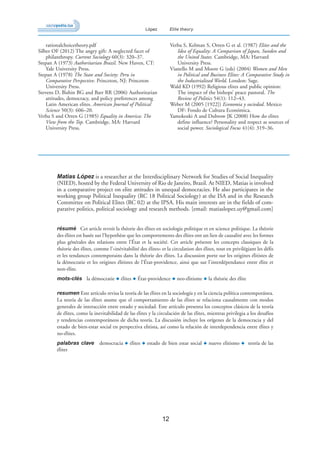AI-Generated "Poop" Podcast: Analyzing Repetitive Scatological Documents For Engaging Content

Table of Contents
Data Acquisition and Preprocessing
Before we can leverage AI's power, we need the raw material: scatological documents.
Sourcing Scatological Documents
Finding suitable data requires a multi-pronged approach. The sources are diverse and present unique challenges.
- Medical Databases: Access to anonymized patient data from hospitals and clinics could provide a wealth of information. However, navigating HIPAA compliance and obtaining ethical approval are crucial steps. Databases like MIMIC-III (for critical care) might offer relevant, albeit indirectly related, data.
- Research Papers: Scientific literature on gastroenterology, microbiology, and public health contains numerous studies focusing on bowel movements, gut microbiota, and related topics. PubMed and Google Scholar are valuable resources for this type of research.
- Archives: Historical records, sanitation reports, and even personal diaries can offer fascinating insights into the evolution of our understanding of, and attitudes towards, waste disposal. Accessing these archives often requires meticulous research and navigating potentially complex permission processes.
Keyword integration: medical data analysis, scatological research, data mining, archival research, HIPAA compliance, anonymized patient data, gut microbiota.
Data Cleaning and Preparation
Raw data is rarely ready for AI processing. Significant preprocessing is essential for accurate and reliable results.
- Data Cleaning: This involves removing irrelevant information, correcting errors, and handling inconsistencies. This could include standardizing terminology, resolving conflicting entries, and dealing with missing data points.
- Text Preprocessing: Scatological documents often contain noise – irrelevant characters, symbols, or formatting issues. Techniques like tokenization, stemming, and lemmatization are crucial for NLP.
- Data Normalization: This step ensures consistent data formatting. For example, standardizing date formats or measurements (e.g., grams vs. ounces) improves the accuracy of AI analysis.
Keyword integration: data cleaning, text preprocessing, natural language processing (NLP), data normalization, tokenization, stemming, lemmatization.
AI-Driven Analysis and Content Generation
Once the data is prepared, we can apply AI techniques to extract valuable insights and generate podcast scripts.
Natural Language Processing (NLP) Techniques
NLP is crucial for extracting meaningful information from the often unstructured scatological data.
- Topic Modeling: Algorithms like Latent Dirichlet Allocation (LDA) can identify recurring themes and topics within the documents, providing a framework for podcast episodes. For example, LDA might uncover distinct discussions on different types of bowel movements or the impact of specific diets.
- Sentiment Analysis: This technique can gauge the emotional tone expressed in the documents, revealing subtle shifts in attitudes or perceptions towards bowel health throughout history.
- Named Entity Recognition (NER): NER can identify and classify key entities, such as specific diseases, medications, or historical figures, creating a more structured and informative podcast.
Keyword integration: NLP algorithms, topic modeling, sentiment analysis, named entity recognition, machine learning (ML), Latent Dirichlet Allocation (LDA).
Generating Engaging Podcast Scripts
AI doesn't just analyze data; it can also help create compelling narratives.
- AI Scriptwriting Tools: Several tools can assist in transforming the extracted insights into coherent and engaging podcast scripts. These tools can help structure the information, suggest transitions, and even incorporate humor where appropriate.
- Storytelling Strategies: To create truly captivating podcasts, we must incorporate storytelling techniques, relating abstract data to relatable human experiences, drawing parallels, and providing context. Humor can also make the topic more approachable and engaging.
Keyword integration: AI scriptwriting, podcast production, content creation, AI-powered storytelling, engaging podcast content.
Addressing Ethical and Practical Concerns
While the possibilities are exciting, it's crucial to acknowledge the ethical and technical challenges.
Ethical Considerations
Using sensitive medical and personal data requires utmost care.
- Informed Consent: Strict adherence to ethical guidelines, including obtaining informed consent for data use, is paramount.
- Data Privacy: Anonymization techniques must be rigorously applied to protect patient confidentiality.
- Avoiding Trivialization: It’s crucial to approach the topic with sensitivity and avoid trivializing or making light of potentially serious health conditions.
Keyword integration: ethical AI, data privacy, responsible AI, medical data ethics, informed consent, data anonymization.
Technical Challenges
Working with scatological data presents unique technical hurdles.
- Ambiguous Terminology: Medical and historical texts often use ambiguous or outdated terminology, requiring careful interpretation.
- Inconsistent Data Formats: Data from diverse sources might lack uniformity, necessitating careful data cleaning and normalization.
- AI Limitations: Current AI technologies might struggle with nuanced interpretations or complex contextual understanding.
Keyword integration: data challenges, AI limitations, technical hurdles, data preprocessing challenges, data inconsistencies.
Conclusion
This article has explored the intriguing potential of using AI to transform repetitive scatological documents into engaging podcast content. While challenges related to ethics and technology exist, the opportunity to create unique and informative podcasts from this seemingly mundane data is significant. By thoughtfully addressing ethical considerations and leveraging appropriate NLP techniques, we can unlock valuable insights and craft compelling narratives. Are you ready to explore the potential of creating your own AI-generated "poop" podcast? Start by identifying relevant data sources and exploring available NLP tools. The world of AI-driven scatological content awaits!

Featured Posts
-
 Teslas Q1 Profit Fall Examining The Impact Of Controversies
Apr 24, 2025
Teslas Q1 Profit Fall Examining The Impact Of Controversies
Apr 24, 2025 -
 Increased Philanthropy At Elite Universities A Response To Political Pressure
Apr 24, 2025
Increased Philanthropy At Elite Universities A Response To Political Pressure
Apr 24, 2025 -
 Teslas Q1 Profit Decline Impact Of Musks Trump Ties
Apr 24, 2025
Teslas Q1 Profit Decline Impact Of Musks Trump Ties
Apr 24, 2025 -
 Analysis Open Ais Potential Acquisition Of Google Chrome
Apr 24, 2025
Analysis Open Ais Potential Acquisition Of Google Chrome
Apr 24, 2025 -
 La Fires Price Gouging Accusations Against Landlords Surface
Apr 24, 2025
La Fires Price Gouging Accusations Against Landlords Surface
Apr 24, 2025
